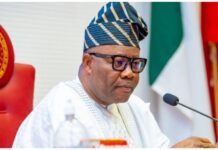By Chimezie Godfrey
Stakeholders have called for the defence and protection of the independence of the judiciary in Nigeria.
This was made known in a statement endorsed by CDD Fellows, Professors Adele Jinadu, Jibrin Ibrahim and Okey Ibeanu.
They recalled that the Chief Justice of Nigeria, Ibrahim Tanko Muhammad, resigned his appointment on 27th June 2022 and the next in line, Olukayode Ariwoola, was sworn in the same day in an acting capacity, as is the practice. The manner of the resignation – voluntary or forced – and the reason for it – ill-health or cover up for corruption – have raised critical questions on the state of the judiciary. Even more important is the circumstances of the said resignation, the letter from his peers that was leaked to the media.
According to them, fourteen Justices of the Supreme Court had written to the Chief Justice of Nigeria (CJN), Tanko Muhammad, lamenting the parlous situation in the court. In this first-of-its-kind protest letter in the 58-year history of the apex court, the justices chronicled the operational challenges that have almost crippled the efficient adjudication of cases at the court.
Also that the aggrieved justices led by the second most senior judge of the Supreme Court, Olukayode Ariwoola, listed the problems to include vehicles, electricity tariff, supply of diesel, Internet services to their residences and chambers, and epileptic electricity supply to the court. The jurists further noted that “we find it strange that despite the upward review of our budgetary allocation, the court cannot cater for our legitimate entitlements”.
They pointed out that justices also complained that for three years the CJN withheld assent to the rules of court, thereby slowing the dispensation of justice. They saw the situation as “the peak of the degeneration of the Court; it is the height of decadence and clear evidence of the absence of probity and moral rectitude.” The import of this leaked letter is that the CJN had lost the respect of virtually the entire justices of the Supreme Court.
According the fellows, even more disturbing is that since the “resignation”, there have been allegations, rumours and innuendos in connection with the former CJN, including rumours of bribery and undue interference of his family in the work of the Supreme Court. Although there is no evidence to back this, the speculations suggest that he did not resign of his own volition.
They therefore called for the defence and protection of the principles of separation of powers and the independence of the judiciary, among other demands.
“We can surmise from these that all is not well with the Supreme Court. It would be recalled that CJN Tanko Muhammad’s predecessor, Chief Justice Walter Onnoghen, was suspended on the 25th of January 2019, following a questionable prosecution by the Code of Conduct Tribunal, at a time also that the residences of several judges, including Justices of the Supreme Court, were raided by security operatives.
“There is strong evidence of the Executive getting involved in activities that interfere with the independence of the judiciary. In other words, there is a challenge to the constitutional principle of separation of powers and the integrity and the independence of the judiciary. The not so hidden hands of the Presidency have also been often seen in the appointment and removal of judicial officers.
“Indeed, the same can be said of the relationship between State Governors and the judiciary at the state level.
The Forum of Fellows of the Centre for Democracy and Development therefore make the following observations:
“i. The crises in the Supreme Court reflect a significant challenge with the operations of the principle of the separation of powers and it is important for all democratic forces to strive to maintain the independence of the judiciary.
“ii. In recent years, several high-profile mid-night attacks on the houses of senior judicial officers, including justices of the Supreme Court has indicated Executive agency in the harassment and intimidation of the judiciary.
“iii. The process of appointment of judicial officers, from the lowest levels right up to the Chief Justice of Nigeria has become politicised and integrity and competence are no longer core criteria in the selection process. The outcome is that there is a steady decline in the quality of judicial officers;
“iv. The powers of the Chief Justice of Nigeria are excessive within the Supreme Court and the National Judicial Council. The same is true of the State Chief Judges in relation to the State judiciary. These should be reviewed to reflect a more collegiate approach among peers.
“v. There is a very high level of corruption in our society which clearly has penetrated the judiciary and threatens to compromise the whole system of justice delivery.
vi.Many judges have become very cosy with politicians and prominent members of society, and no longer keep to the age-old principle of maintaining a healthy distance from political and social networks.
“Based on the foregoing, the Forum recommends that: “Defending and protecting the principle of separation of powers and the independence of the judiciary should constitute a principal plank of advocacy by all democratic forces and organizations.
“The process of appointing judges at all levels, including the CJN, should be reviewed and made more open with a focus on competence and integrity,” they stated.
The group stated that the excessive powers of the Chief Justice of Nigeria in the control of the Supreme Court and the National Judicial Council should be reviewed and transformed into a more collegiate system.
They also demanded that the conditions of service of judicial officers, especially Judges and Magistrates at all levels, should be improved and their tenures properly guaranteed to insulate them from political and societal pressures and corrupting influences.




